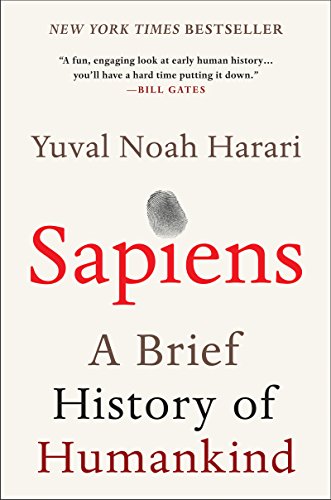

This article is an excerpt from the Shortform summary of "Sapiens: A Brief History of Humankind" by Yuval Noah Harari. Shortform has the world's best summaries of books you should be reading.
Like this article? Sign up for a free trial here .
What were the effects of the Scientific Revolution? How did advances in science lead to the merging of science, imperialism, and capitalism?
The effects of the Scientific Revolution include the merging of science with other institutions and the legacy of how we perceive the inevitability of death. These effects have touched almost every aspect of our governments and economies.
We’ll cover the impact of the Scientific Revolution on politics, governments, and ethics.
4 Effects of the Scientific Revolution
Effect #1: The Web of Science-Economy-Politics-Religion
Research is expensive, and often money does more than brilliance in making important discoveries. Modern science has made the impact it has because governments, businesses, and private donors have given billions of dollars to scientific research. This isn’t just a present-day phenomenon. It’s a direct effect of the Scientific Revolution: If Galileo or Darwin had never been born, their discoveries would probably have been made eventually by someone else (in fact, Alfred Russel Wallace formulated the theory of natural selection independently of Darwin and only a few years after Darwin did). But if European governments hadn’t financed scientific research, Darwin and Wallace wouldn’t have had the data they needed to come up with their theories in the first place. Scientific progress depends on the money invested in it. The link between governments and science is one effect of the Scientific Revolution.
Science is usually funded for political, religious, and economic goals, not out of altruism. For example, in the 16th century, kings financed geographical expeditions rather than child psychology, because the expeditions would give them the information needed to conquer new lands, while child psychology wouldn’t. People with money and power dictate the scientific agenda.
We can’t not fund politically. When resources are limited, science itself has no way of determining which projects to fund. For instance, if we’re judging scientific discoveries based on their usefulness, how do we determine usefulness? And for whose use? If we have a limited amount of resources, should we use our discoveries about genetics to cure cancer, create genetically engineered humans, or alter foods? Science can’t answer these questions. That’s the job of those with power and the social structures they maintain.
Our imagined orders—our religions and ideologies—finance research. In return, they determine how its discoveries are used (and what gets studied in the first place). Therefore, we can’t just look at the scientific discoveries themselves to understand the origins and effects of the Scientific Revolution. Much of the causes of the Scientific Revolution were philosophical and cultural, as well as specifically science-based.
Effect #2: Science Is Inextricably Linked With Imperialism
As we know, those in power rarely seek knowledge for knowledge’s sake. As Europeans set out to conquer the world in the 18th century, imperialism and the Scientific Revolution became not only inseparable but indistinguishable. Expeditions had the dual purpose of colonizing new territories and making scientific discoveries, and each goal aided the other. This was an effect of the Scientific Revolution.
A major effect of the Scientific Revolution was that now science provided imperialists with many practical advantages: They could navigate the seas with more accuracy, conquer lands with advanced weapons, and keep themselves and their new subjects alive with medicines to cure the diseases of newly conquered lands. But more importantly, science gave imperialists the “ideological justification” they desired to continue invading the territories of other nations. These justifications were an effect of the Scientific Revolution.
Three Ideological Justifications
#1: Science operated on the belief that new knowledge is always a positive thing to have and a good in and of itself. Following this logic conquering foreign lands must also be a good thing since it allows for the discovery of new knowledge.
#2: Science spread benefits such as improved medicine, education systems, and railroads. So imperialists were altruistically serving the people they conquered by improving their lives with the progress and prosperity that comes with science.
#3: Science said that Europeans were the superior race due to the (questionable) evidence that Aryans were the original speakers of the “pure” language that spawned all the Indo-European languages. Combined with the theory of natural selection, they theorized that Aryans must have intermarried in India and Persia and lost their work ethic and rationality. Only Aryans in Europe remained pure. Therefore, imperialists had the right and duty to rule over other races.
In this way, European imperialism was built on the rationalizations of “science.” Other empires lacked the science that provided both the practical means and the justification to conquer new lands.
Effect #3: The Idea of Progress and the Rise of Credit
One effect of the Scientific Revolution was the idea of progress. If we admit our ignorance, we can take steps to eradicate our ignorance, and this leads to progress. This mindset extended to the economy as well. For instance, new trade routes opened and flourished without damaging the business of the old trade routes. The bakery specializing in cakes didn’t ruin the neighboring bakery specializing in bread.
Trust in the future allowed for the widespread use of credit. Credit allowed the economy to grow. This growth gave people hope in the future and they extended more credit, continuing the cycle of growth.
The New Ethics of Capitalism
Before the notion of progress, people believed that being wealthy was sinful. This was a Christian idea based on the assumption that there was a fixed amount of wealth and resources to be had.
Now, people started to see their wealth as independent of others’ poverty. Further, not only was individual wealth not a sin, it was a societal good. Leading this new morality of money was Adam Smith. In The Wealth of Nations, Smith contended that an employer’s profits benefit society because the employer reinvests his profits in hiring more employees. By hiring more employees, the employer more widely spreads the business’s profits. In a sense, greed is good for everyone. This was an indirect effect of the Scientific Revolution.
People started thinking of money-making as a public good. If you’re poor, then you can’t buy your neighbor’s goods, which hurts both of you. If your neighbor is poor, then she can’t buy your goods, which, again, hurts both of you. If just one of you is poor, you both lose. Of course, if both of you are rich, you both win.
Capitalism brought with it an additional code of ethics, building on the ethics of individual wealth. It declared that economic growth was the “supreme good” because you couldn’t have a just and free society without it. For instance, a capitalist might say that because a stable government depends on a thriving middle class, you can bring political freedom to Zimbabwe by teaching tribesmen about thrift and free enterprise.
The Codependency of Science and Capitalism
Capitalism has changed the goals of science. Capitalism asks, “How will this research help my company increase production and profits?” If science can’t answer that, it doesn’t get funding.
But science has also affected capitalism. In many ways, the founding assumptions of capitalism don’t make sense. Why do we think that our resources will be more abundant tomorrow than they are today? A pack of wolves doesn’t look at a herd of sheep and think it will keep getting growing, day after day, even as they keep eating.
In order to make our sunny predictions about the future true, science needs to keep churning out discoveries and technology, such as the discovery of America or the internal combustion engine, that increase our resources or productivity. Until science comes up with a new gadget or discovery, governments often generate bills and coins out of thin air, in the hopes that science will discover something big before the bubble bursts.
Science and the economy depend on each other to stay afloat. The dependence of the economy on scientific innovation is an effect of the Scientific Revolution.
Effect #4: The Reinterpretation of the Problem of Death
Perhaps one of the biggest effects of the Scientific Revolution is the way we perceive and deal with the “problem of death.” Through most of history, people have regarded death as inevitable, but even that “knowledge” is becoming questionable as scientists openly tackle this thorniest of problems.
One source of thorns in that most religions are meaningless without the concept or reality of death. Religion teaches us to live life in accordance with its laws so that we can find peace in the afterlife. Without death, many religions no longer make sense.
Whereas death used to be solely a religious problem, it’s now seen as a technical problem. Today, we can revive a fluttering heart with a pacemaker; we can kill cancer with drugs and radiation; we can conquer bacteria with antibiotics. We’ve developed new treatments and artificial organs that can extend life, and the average life expectancy has increased from 25 years, in the centuries before the Scientific Revolution, to 67 years (80 years in the developed world). Some think that humans will become “a-mortal” (immune to deaths caused by “natural causes,” rather than accidents) by 2050.
Further, today’s newest and most widespread religions, such as liberalism, socialism, and feminism, make no mention of the afterlife, reflecting the growing idea that we won’t ever have to die, and that what happens during life is more important than what comes after it.
———End of Preview———

Like what you just read? Read the rest of the world's best summary of "Sapiens" at Shortform . Learn the book's critical concepts in 20 minutes or less .
Here's what you'll find in our full Sapiens summary :
- How Sapiens outlived and outlasted the 8+ other human-like species on Earth
- The 3 critical revolutions in human existence that led to our domination of the planet
- How much of what powers our world today is really just a shared mass delusion
- What the future of humanity might look like






